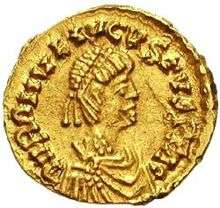475
| Millennium: | 1st millennium |
|---|---|
| Centuries: | 4th century · 5th century · 6th century |
| Decades: | 440s · 450s · 460s · 470s · 480s · 490s · 500s |
| Years: | 472 · 473 · 474 · 475 · 476 · 477 · 478 |
| 475 by topic | |
| Politics | |
| State leaders – Sovereign states | |
| Birth and death categories | |
| Births – Deaths | |
| Establishment and disestablishment categories | |
| Establishments – Disestablishments | |
| Gregorian calendar | 475 CDLXXV |
| Ab urbe condita | 1228 |
| Assyrian calendar | 5225 |
| Bengali calendar | −118 |
| Berber calendar | 1425 |
| Buddhist calendar | 1019 |
| Burmese calendar | −163 |
| Byzantine calendar | 5983–5984 |
| Chinese calendar | 甲寅年 (Wood Tiger) 3171 or 3111 — to — 乙卯年 (Wood Rabbit) 3172 or 3112 |
| Coptic calendar | 191–192 |
| Discordian calendar | 1641 |
| Ethiopian calendar | 467–468 |
| Hebrew calendar | 4235–4236 |
| Hindu calendars | |
| - Vikram Samvat | 531–532 |
| - Shaka Samvat | 396–397 |
| - Kali Yuga | 3575–3576 |
| Holocene calendar | 10475 |
| Iranian calendar | 147 BP – 146 BP |
| Islamic calendar | 152 BH – 151 BH |
| Javanese calendar | 360–361 |
| Julian calendar | 475 CDLXXV |
| Korean calendar | 2808 |
| Minguo calendar | 1437 before ROC 民前1437年 |
| Nanakshahi calendar | −993 |
| Seleucid era | 786/787 AG |
| Thai solar calendar | 1017–1018 |
| Wikimedia Commons has media related to 475. |

Emperor Romulus Augustus
Year 475 (CDLXXV) was a common year starting on Wednesday (link will display the full calendar) of the Julian calendar. At the time, it was known as the Year of the Consulship of Zeno without colleague (or, less frequently, year 1228 Ab urbe condita). The denomination 475 for this year has been used since the early medieval period, when the Anno Domini calendar era became the prevalent method in Europe for naming years.
Events
By place
Roman Empire
- January 9 – Emperor Zeno abdicates under pressure, as his wife's uncle Basiliscus stages a coup d'état at Constantinople, with support from Zeno's trusted adviser and fellow Isaurian Illus. Basiliscus usurps the throne and is proclaimed new emperor (Augustus) of the Eastern Roman Empire. He begins a 20-month reign; Zeno and his supporters flee to Isauria.
- April 9 – Basiliscus issues a circular letter (Enkyklikon) to the bishops of his empire, promoting the Miaphysite christological position. The religious views will make him highly unpopular.
- Summer – Emperor Julius Nepos grants the Visigoth king Euric legal tenure of his conquests, which include Provence (region of Gaul), in exchange for full independence.
- August 28 – Flavius Orestes takes control of the government at Ravenna and forces Julius Nepos to flee to Dalmatia. Unable to rule himself, he appoints his son Romulus Augustus.
- October 31 – Romulus Augustus ("Little Augustus") is installed as emperor by his father Orestes, who becomes magister militum and regent of the Western Roman Empire. Augustus's reign will last for 9 months and he will be the last ruler of the Western Empire.
Asia
- Bodhidharma, Buddhist monk, travels to China and begins teachings of the Laṅkāvatāra Sūtra (approximate date).
- Gongju becomes the capital of Baekje, and is threatened by Goguryeo who conquers the Han River valley (Korea).
By topic
Art
- A Bodhisattva (detail of a wall painting in the Ajanta Caves) in Maharashtra (India) of the Gupta period) is made (approximate date).
Religion
- The compilation of the Babylonian Talmud, the source of the majority of Jewish Halakha, is completed.
- Church of Saint Simeon Stylites consecrated in Syria.
Births
- Clotilde, Burgundian princess (d. 545)
- Íte of Killeedy, Irish nun (approximate date)
Deaths
- May 27 – Eutropius, bishop of Orange
- Ferreolus of Rodez, Roman senator
- Flavius Magnus, Roman consul
- Gaero, king of Baekje (Korea)
- May 11 – Mamertus, bishop of Vienne
- Tonantius Ferreolus, praetorian prefect
References
This article is issued from Wikipedia - version of the 10/29/2016. The text is available under the Creative Commons Attribution/Share Alike but additional terms may apply for the media files.